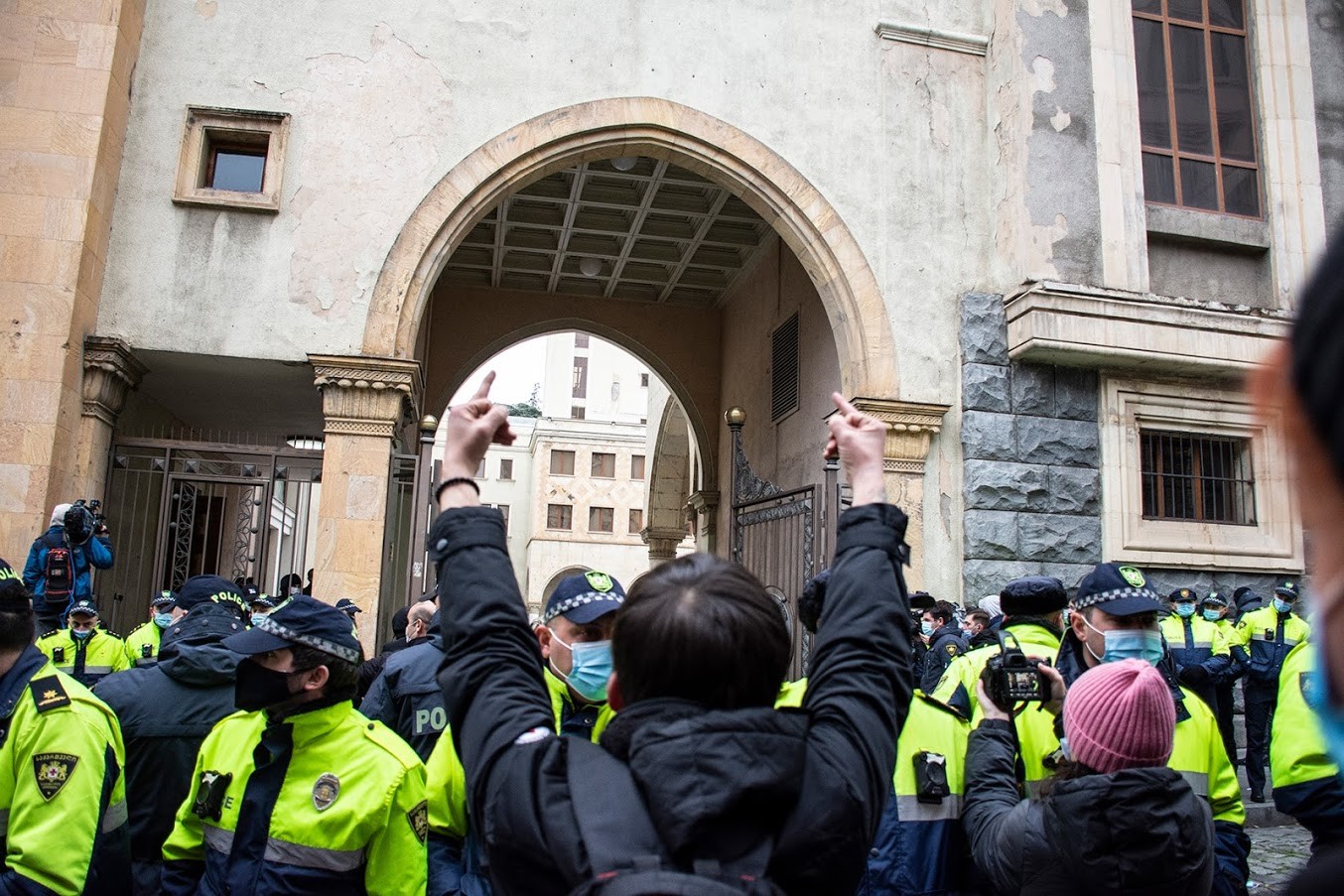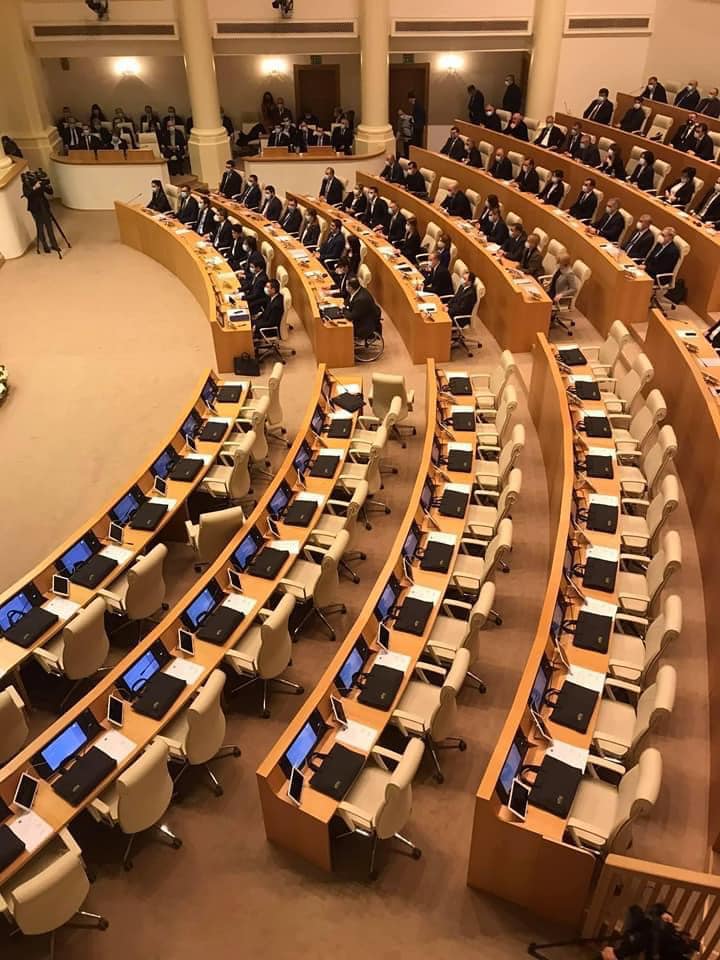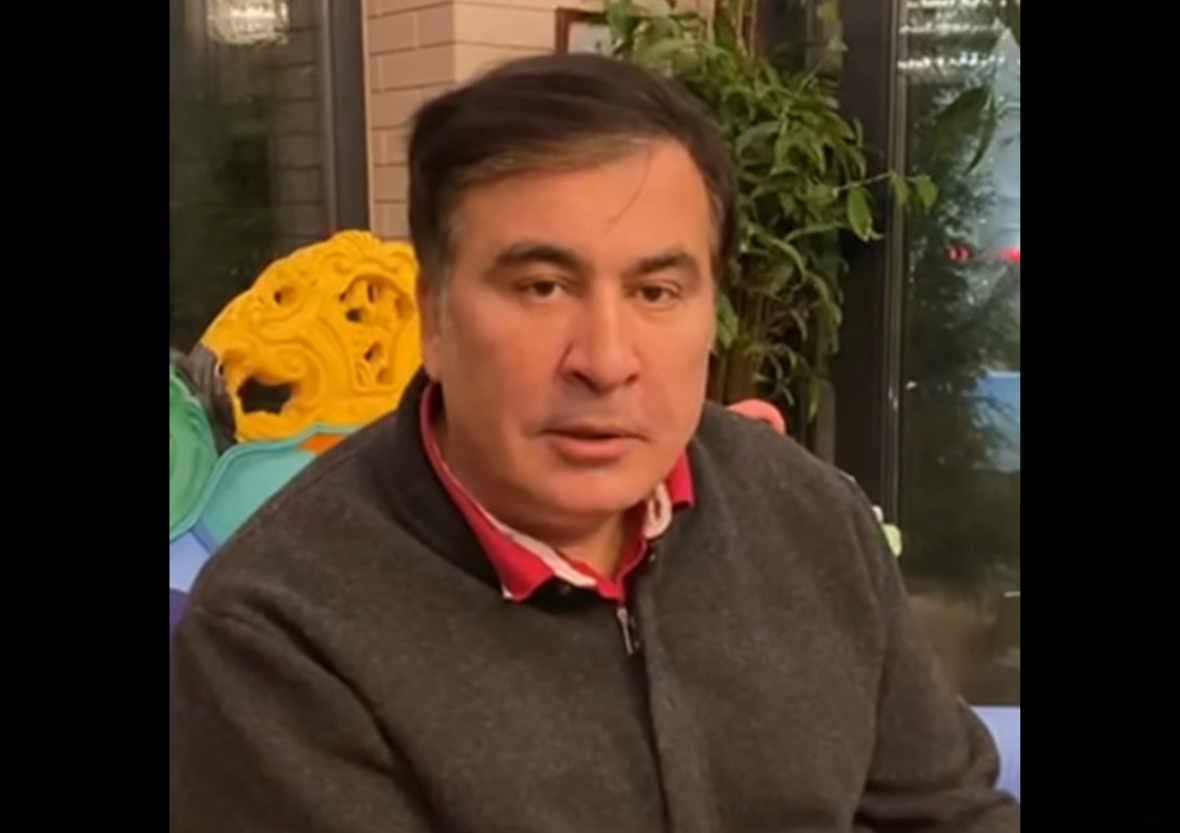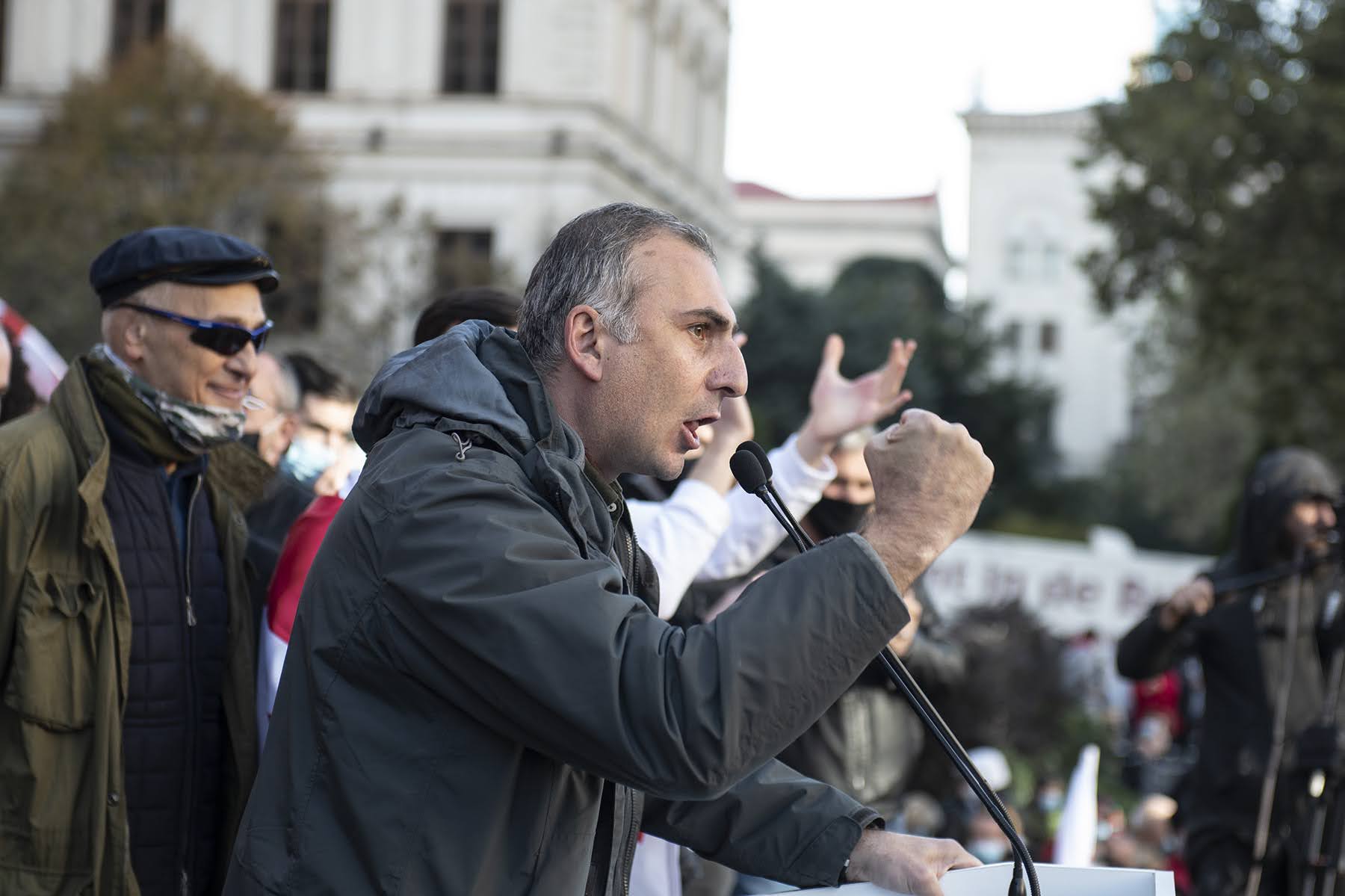Georgia’s new parliament opens without a single member of the opposition

After six weeks of negotiations with the ruling party and growing infighting, major opposition groups have refused to endorse their parliamentary mandates as the US and EU-brokered negotiations are stuck in a deadlock.
As 87 Georgian Dream MPs took their oaths inaugurating the new Parliament in Tbilisi on 11 December, outside, several hundreds of metres away several major opposition groups that had gained parliamentary mandates in the disputed 31 October vote signed a joint memorandum to formally reject them — though, legally they have not yet rejected them.
Georgian Dream MPs had to start the new convocation of the Parliament in absence of any opposition MPs today.
According to the Central Electoral Commission, Georgian Dream, founded over eight years ago and chaired by billionaire Bidzina Ivanishvili, garnered 48% of votes, returning to power for the third consecutive time since 2012 with 90 seats in the 150-member parliament.
The former ruling United National Movement (UNM, 27%), European Georgia (4%) which split from UNM in early 2017, and the anti-NATO Alliance of Patriots, have retained their representation in the parliament.
Other parties that have won seats in the election include Lelo (3%) led the Georgian banker Mamuka Khazaradze, Strategy Aghmashenebeli (3%) chaired by former UNM ex-member Giorgi Vashadze, the libertarian party Girchi (3%), the Labour Party (1%), and Aleko Elisashvili’s Citizens (1%).
Beyond the nine major opposition groups, the parliament also formally includes two elected MPs from the Republican Party and four others from two lesser-known groups that ran as part of Strength in Unity coalition bloc led by UNM, as well as the leader of the Law and Justice Party, Tamar Charkviani from the Strategy Aghmashenebeli bloc.
All of the opposition groups that called the election results ‘rigged’ have boycotted the new parliament and are supported by smaller parties that failed to pass the 1% threshold, including the parliamentary ex-speaker Nino Burjanadze.

On 10 December, watchdog group Transparency International — Georgia warned that the one-party parliament would be dysfunctional as it will be unable to ‘fulfil the role of a representative body’ to ‘exercise oversight over the government’.
In her opening speech in parliament, President Salome Zurabishvili criticised opposition groups and rejected calls for annulling 31 October vote. She also stated that she ‘hoped’ the legislature would eventually be ‘duly filled’.
Snap elections, under one condition
Minutes before the parliament opened, the EU Delegation to Georgian and the US Embassy in Tbilisi put out a joint statement saying they were ready to continue facilitating talks between Georgian Dream and the opposition and urged all groups ‘to move forward toward an agreement that will allow the Parliament to assume its full and vital role’.
The fifth round of negotiations between Georgian Dream and eight opposition parties, initially slated for the day before the parliament opened, was ‘postponed’ after the ruling party’s Executive Secretary Irakli Kobakhidze accused the ‘radical opposition’ of jeopardising negotiations and then threatened to deregister UNM as a political party.
Kobakhidze argued that UNM, who led the country from 2004–2012, was still run by ex-President Mikheil Saakashvili. This, he said, was in violation of Georgian laws as Saakashvili was a Ukrainian citizen and had also been sentenced in absentia by Georgian courts for abuse of power.
UNM has had Grigol Vashadze, former Georgian Foreign Minister under Saakashvili’s rule, as their new Chair since March 2019. Mikhail Saakashvili is, at present, the Honorary Chair of UNM.
While Vashadze found himself isolated from his own party after he suggested that the opposition challenge Georgian Dream within the parliament, instead of holding a boycott, he has nevertheless continued to formally lead the party.

On 9 December, Irakli Kobakhidze promised snap elections provided the investigative committee in the new parliament would find ‘even a 1%’ discrepancy among votes counted. He added that in that eventuality he would also retire from politics.
Independent observers, including the international mission under the auspices of the OSCE/ODIHR and local election watchdogs, reported a number of repeated violations during the 31 October vote, including the pressuring of voters and compromised vote count summaries.
The day following the election, opposition groups organised street protests, arguing that they were unable to dispute numerous violations at the Central Election Commission and in Georgian courts as they were ‘under the control of Georgian Dream’.
After rejecting Grigol Vashadze’s call for dialogue within the new parliament and following over a week of intense street demonstrations, on 12 November all eight opposition groups agreed to negotiations with Georgian Dream.
Following the fourth round of talks on 9 December, Kobakhidze also reversed a previous statement in which he said Georgian Dream would not recognise opposition MPs rejection of their parliamentary mandates.
Despite the u-turn, Georgian Dream has expressed a readiness to only continue negotiations with those opposition members that would not reject their parliamentary mandates, which leaves continued negotiations in question.
Refusing to sign the memorandum
While most of the opposition groups condemned what they described as anti-democratic rhetoric coming from Georgian Dream and did not participate in the parliament opening, The Citizens, Girchi, Republicans and Alliance of Patriots groups also did not participate in the signing of the memorandum to reject parliamentary mandates.
Following the fourth round of talks brokered by the EU representatives in Georgia and US ambassador Kelly Degnan on 9 December, pro-opposition Georgian media started questioning the rationale for continued dialogue with Georgian Dream so long as the ruling party continued to say that a snap election was off the table.
Annulling the 31 October vote with a repeated or snap election and ‘releasing political prisoners’ have remained opposition groups’ top two demands for the 40 days since the disputed election. A notable exception has been the Alliance of Patriots, which have not spoken of ‘political prisoners’ and have not coordinated their platform with other opposition groups.
[Read more on OC Media: Georgian officials indicted for ‘hiding maps’ to concede territories to Azerbaijan]
Aleko Elisashvili and his Citizens group, which garnered two seats in the parliament, have been most outspoken in their support of continuing talks with Georgian Dream.

Elisashvili insisted that it was the result of the four rounds of negotiations that Georgian Dream agreed to call for snap elections in case electoral violations were recognised by a joint-parliamentary commission (which would include opposition MPs).
According to the Citizens’ chair, Georgian Dream was also forthcoming regarding the release of political prisoners and on the opposition’s proposals on reforming ‘election commissions and voting rules’. The negotiations, he insisted, were ‘sabotaged’ by European Georgia.
Girchi did not sign the common document which committed signatories to annul their parliamentary mandates.
While Girchi leader Zurab Girchi Japaridze called the signing of the document an unnecessary ‘ceremony’, three other Girchi members, including Girchi Chairm Iago Khvichia, have insisted on continuing the dialogue with Georgian Dream.
Two elected MPs from the Republican Party, which is part of the UNM-dominated Strength in Unity bloc, also refused to sign the 11 December memorandum stating that they expected negotiations to continue.




















